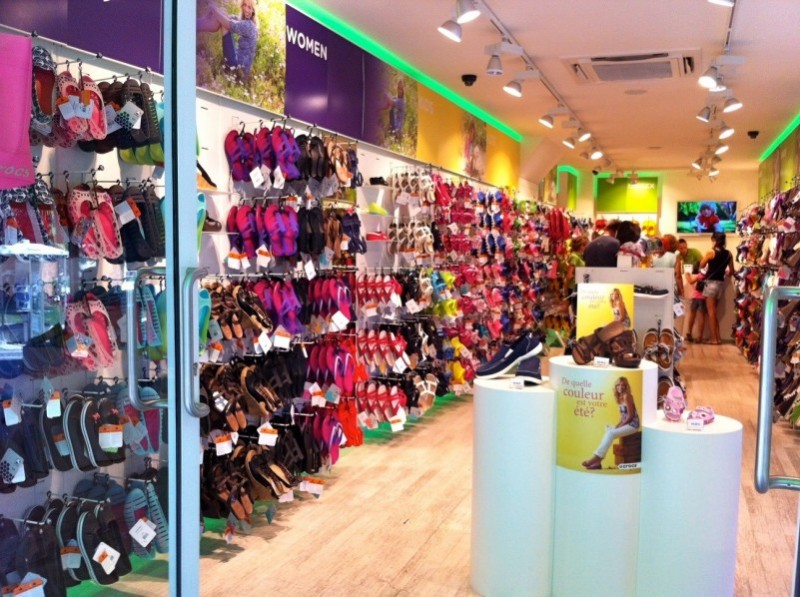Summer has officially begun – and it could begin in no more official way for Philippe, seven-year-old Lolo and me than with a hearty welcome at Nice Airport by Christelle, the effervescent wife of our habitual taxi driver Eric. Her highlighted red hair is longer this summer, clipped back artfully by sparkly butterflies, and she towers over me in her customary heels.
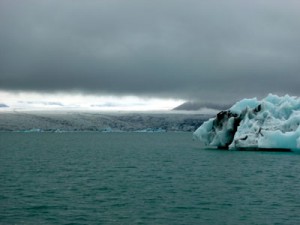
Christelle greets us with a cheery bonjour and plants two kisses each on Philippe’s and my cheeks. I scramble to remind Lolo of France’s bonjour ritual and the expectation – particularly now that she’s a grown-up seven – of good manners. Soon we’re cruising along the Côte d’Azur’s illustrious highways in Christelle’s 4×4, making good tracks toward Bellevue, our summer home at the mouth of the Cap d’Antibes.
We are thanking our lucky stars that we are here. Philippe and Lolo are breathing in the Riviera’s warmth like it is some long-lost blanket that disappeared for an eternal and unbearable Canadian winter. Truth is, Canada’s winter wasn’t so bad this year. The other truth is that we’ve been in Iceland for the past week, and while we completely lucked out on an abundance of sunshine and lack of rain, only the hardiest Icelanders donned their tee-shirts.
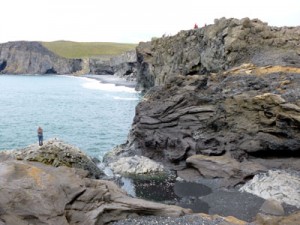
I, personally, adored Iceland more than either of my Mediterranean-leaning family members, but I am glad we emerged from the Nordic country with our brains in tact. Last week we visited the Westman Islands, a set of small islands off the big island that are famous for their volcanic eruptions, and there we set eyes on its Member of Parliament, Árni Johnsen. Having been sentenced to two years of prison in 2003 for embezzling government funds, the husky Mr Johnsen just survived another “accident” on the main island, this one involving high speeds, alcohol, and his car being “torpedoed” off the highway. He credits his continuing life to a 50-tonne roadside boulder – and to the fairies that dwell within it. The MP got permission from a self-proclaimed elf specialist to move the enormous hunk of rock to his front yard on the Westman Islands, but he has incited a local row from a professor of fairyism, who says that fairies should never move house (or rock, as it be). All of this, I must remind you, from a respected member of Iceland’s good political leadership who, at this very time, is working to save the country.
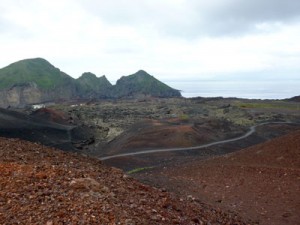
But I digress. The air is certainly warmer here in the Côte d’Azur, and the place is completely free of elf spirits. And even if France has its own economy to worry about saving, at first sniff of the busy airport and streaming traffic, the Côte d’Azur certainly doesn’t seem to be bothering with all that.
Christelle whizzes the three of us and our mounds of luggage toward the Cap d’Antibes. Her sunglasses are round and modishly oversized, her shoulders bare in her not-the-typical-taxi-driver’s flowered, silky dress. I’m trying to work out how she manages the accelerator all day in those heels when I notice that her arms glitter in the sunlight. I’d forgotten that body lotion often sparkles in the Côte d’Azur, too.
We’re just in time for the summer weather, Christelle tells us. It began only a day ago. And business is booming. The world has descended on the Côte d’Azur this season, she says. And as if to prove it, her fare goes up a whopping 33% from last year. Let’s hope it was the luggage.
Returning to Bellevue is, as usual, a mostly splendid feeling. Now in the seventh year of these reunions, our home is both known and comfortable but it’s also a bit foreign and foreboding after the long months away. How do I turn off the alarm? It’s always the first question. What’s broken? Which beasts will emerge from the humid, seaside terrain? (This year’s answer: the ubiquitous teams of ants, a creepy earwig, and a full, meter-long snake.)
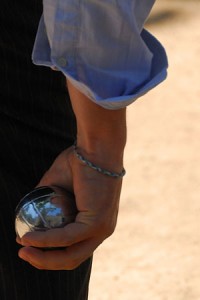
We ease into the ritual of life here. Three parades of honking cars circulate past Bellevue on Saturday afternoon, punctually on the half-hours, as wedding parties take their habitual tours around the Cap d’Antibes, tracing the Mediterranean coastline. Sabrina, our beloved French au pair, pays us a visit, much to everyone’s delight. The boules come out in the early evening over the garden wall at the Port de la Salis, sending a reverie of dull, metallic clinks onto Bellevue’s terrace. Seated here in the early evening, Philippe, Lolo and I dive into our usual Quatre Saisons and Hawaïenne pizzas from Miguel at Bistrot de la Plage. We admire our favourite view all over again, gazing onto Antibes’ old rampart walls and the cobbled village those walls once protected. The vibrant shades of the afternoon soften into pastels as the sun sinks toward the skyline.
The early part of the night now upon us, we take a drive that first night over to the adjoining town of Juan-les-Pins. Our routine is to stop for ice cream at Pinocchio’s and have a chat with Marc, the shop’s owner and father of Lolo’s former classmate. Business is tougher this year, he reports. The season is slow to start in Juan-les-Pins. His advice conflicts with Christelle’s upbeat one but we feel it. Juan-les-Pins still throbs at night but somehow less so.
As I get ready for that first deep sleep after a day of travel, the usual beacon from the top of the hill swirls outside the bedroom’s back windows. The Garoupe lighthouse pierces the dark sky more visibly this year – the tower itself even partly visible from our second story windows – as many trees and shrubs have been trimmed back.
But this year there is one change to our early ritual, and it’s a significant one. We are missing a major character in our French existence. Bernard.
The grey man – as I have described him in prior posts, both for his complexion and for his eternally grumbling but somehow endearing French ways – didn’t nod to us as Christelle’s taxi swung into Bellevue’s gates, his visit coinciding with some aspect of home maintenance. He didn’t shake Philippe’s hand as I unloaded Lolo from the taxi. He didn’t ask me his usual “La vie est belle?” line with no intention of hearing whether life really was good or not. And he didn’t look at Lolo’s newly attained stature and half-exclaim, “Elle a agrandi.”
Bernard, the man who was my father figure in Antibes especially while Philippe travelled and I looked after Bellevue, is no longer. He died a couple months ago, suddenly, on Easter weekend. He shot himself. There was no note.
We already miss him. Other changes to life in Antibes are, thankfully, far more positive. Car and motorbike drivers still are tempted to scream up and down Boulevard de Bacon’s long hill outside Bellevue’s walls. But now, and wonderfully so, the dashed lines segregating the edge of the road for pedestrians have pushed a whole foot further into the centre. What’s more, the city has placed a tall, freestanding blue-and-white-striped reflective signal along the road, at the corner of our property with the port. I can only imagine what drama, horrific or otherwise, occurred to slide these changes through the city’s red tape.
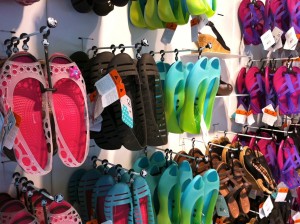
As I bike through town in these first days, I look for evidence that the ghastly European economy is ravaging the good city of Antibes. Sure, some shops have gone away, but others have popped up out of nowhere, like an upmarket Italian restaurant just a short walk down the beach from Bellevue. And there’s now a whole store in Old Town, smack on Rue de la République, that’s devoted to very un-French Crocs. Its walls are lined in a rainbow of shoes. To think that over the past five-or-so years I’ve relegated my purple Crocs to the confines of Bellevue’s high walls!
But the truth often lies beneath the first glance here. Both Philippe and I are asking questions about the economy. It’s not only we who want to learn more. Philippe’s on a mission for his North American business contacts, too.
So we settle in. At the beginning of every visit like this, I know I stick out. Never mind the language; I’m doing my best. Worse is trying to endure the everlasting afternoons without snacking. Lunch is placed at a normal hour and dinner is late in the French tradition – but it’s completely un-French for an adult to snack in between them.
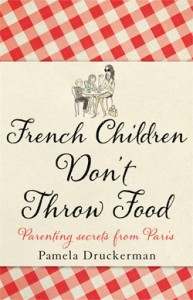
One afternoon shortly after our arrival, I bike to the Boulangerie de l’Îlette and take a seat outside. The waiter remembers me. I order a grande crème and slice of cherry clafoutis and set about to consume both in their entireties. I’m starving. I’ve brought my book to the boulangerie, an oddity in itself because coffee, done the French way, is all about sharing conversation. Even worse, the book is Pamela Druckerman’s French Children Don’t Throw Food. I try to hide the title. The prior chapter has just advised me that French women never, ever order grand crèmes – only petite espressos, please – and that the midday pastry is one big, huge ‘non’.
I’d go so far to say there’s an out-and-out publicity push in France to ne pas grignoter. Roadside adverts for the new strawberry McFlurry display this line at the bottom, as if snacking on a McFlurry is equivalent to smoking an entire pack of cigarettes: “Pour votre santé, évitez de grignoter entre les repas.” For your health, avoid snacking between meals. Lolo pipes up from the backseat of the car. She can recite that phrase verbatim. The exact same message runs on TV between her morning cartoons.
I must say the grande crème and cherry clafoutis are delicious. So, I try to rationalize, which French mothers are biking around town like I do? Or, for that matter, skipping alongside their children on the sidewalk while waiting for a ride? And anyway – very un-French-like – I didn’t pour a single grain of sugar into my coffee!

I guess it’s hard to become bleu-blanc-rouge too quickly. Charmingly, just as we are who we are, much remains the same about the ritual of life in Antibes. I bike along the beachside road, helmet covering my skull and sunglasses shielding my eyes, but even under this disguise a wave emerges from Chez Josy, my favourite snack kiosk on the beach. (I go there for lunches, of course, not snacks.) Philippe, Lolo and I reunite with local friends, both Anglo- and Francophones, over meals. We rediscover our pilates class at Cannes Pilates, and the owners of our favourite Cannes café (Volupté), fish shop (on Rue Chabaud) and produce stand at the Marché Gambetta. We pick up where we left off.
In our small way, I am realizing, we have become part of the summertime fabric in the Côte d’Azur. An expected piece of Antibes’ high-season mosaic. We, too, are part of the ritual.

